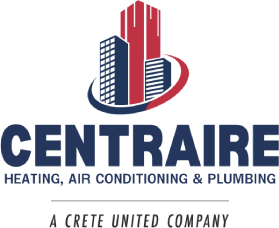In today’s competitive business landscape, maintaining a comfortable environment for employees and customers while managing energy costs is essential for continued success. One innovative solution that can help you achieve these goals is the implementation of zoning systems within your commercial HVAC system. Zoning allows you to divide your space into multiple zones that can be independently controlled, resulting in increased energy efficiency, improved comfort, and the ability to tailor temperature settings based on the specific needs and usage patterns of each zone.
We take great pride in offering a wide range of high-quality services designed to cater to your heating, filtration, air conditioning, and plumbing needs in commercial settings. With a focus on energy efficiency and personalized comfort, our team is committed to providing solutions that can enhance the overall performance and effectiveness of your HVAC system. Explore the many advantages of integrating zoning systems into your commercial HVAC system, and how this innovative approach to temperature control can benefit your business.
Table of Contents
ToggleThe Fundamentals of HVAC Zoning Systems
Zoning systems function by separating a commercial space into multiple sections or “zones,” which can be independently heated or cooled based on specific requirements. This is achieved through a combination of dampers within the ductwork, customizable thermostats, and a central control unit that manages temperature adjustments.
Key Benefits of Commercial HVAC Zoning Systems
Implementing zoning systems in your commercial HVAC applications offers several advantages, including enhanced energy efficiency, customized comfort, and improved air quality. By allowing you to adapt temperature settings according to individual zone preferences, zoning systems contribute to a more comfortable environment for employees and customers, while reducing unnecessary energy consumption.
Maximizing Energy Efficiency with Zoning: How Independent Temperature Control Reduces Consumption
1. Targeted Heating and Cooling
One of the major benefits of incorporating zoning systems into your commercial HVAC setup is the potential for significant energy savings. By independently regulating the temperature in different zones, the system uses only the necessary amount of heating and cooling for each specific area. This targeted approach prevents wasteful energy consumption and helps lower overall energy expenses.
2. Reduced HVAC System Strain
Additionally, zoning systems can help reduce strain on your HVAC equipment. When a system is regularly supporting the comfort needs of an entire building, it can become overworked and potentially experience premature wear and tear. Zoning systems help to alleviate this stress by more efficiently regulating heating and cooling, prolonging equipment lifespan and reducing maintenance costs.
Achieving Customized Comfort in Commercial Spaces: Personalization and Adaptability of Zoning Systems
1. Adaptable Temperature Control
In commercial settings, it’s essential to ensure each zone maintains its preferred temperature to promote a comfortable environment for employees and patrons. Zoning systems offer the flexibility to cater to the varying needs of different spaces within a building, whether it’s meeting the specific heating and cooling demands of a retail store, office space, or manufacturing warehouse.
2. Improved Air Quality
By enabling more precise temperature control, zoning systems can also positively impact indoor air quality. Targeted heating and cooling result in reduced temperature fluctuations and better humidity control, both of which can help minimize the growth of mold and allergens, promoting a healthier indoor environment.
Implementing Zoning in Existing or Retrofit Commercial HVAC Systems: Key Considerations and Challenges
1. Assess Your Space and HVAC Needs
Before implementing a zoning system into your current HVAC setup, it’s crucial to evaluate the specific needs of your commercial space. This involves assessing factors such as square footage, occupancy levels, unique temperature requirements, and existing HVAC infrastructure. This information will help you develop a zoning system tailor-made for the unique conditions of your space.
2. Professional Consultation and Installation
Integrating zoning systems into existing or retrofit HVAC systems can be complex, which is why it’s critical to work with experienced professionals. Partnering with a knowledgeable HVAC team ensures an expert assessment of your space and the installation of a customized zoning solution that best fits your business’s specific requirements.
Zoning System Components: An Overview of Essential Hardware and Technologies
1. Central Control Unit
The central control unit acts as the “brain” of the zoning system, monitoring temperature settings and coordinating damper movement in the ductwork to efficiently maintain the desired conditions in each zone.
2. Dampers and Actuators
Dampers and actuators are critical components that regulate airflow through ducts. Dampers are adjustable panels that open or close according to the temperature setting, while actuators power their movements, ensuring precise airflow distribution.
3. Zone Thermostats
Each zone in a commercial space features its thermostat, permitting occupants to customize the temperature according to their preferences independently.
Conclusion
By integrating zoning systems into your commercial HVAC applications, you can effectively enhance energy efficiency, create a more comfortable atmosphere, and provide personalized temperature control across multiple zones. As a result, your business can reap the benefits of a more efficient and sustainable operation, supporting employees’ and customers’ well-being and productivity.
As a reliable HVAC contractor in Edina, MN, Centraire Heating, Air Conditioning & Plumbing, Inc. is dedicated to providing comprehensive heating, filtration, air conditioning, and plumbing services that accommodate the unique needs of commercial spaces. If you’re interested in learning more about how zoning systems can revolutionize your commercial HVAC system and contribute to a more efficient and comfortable environment, contact us today for a consultation!



